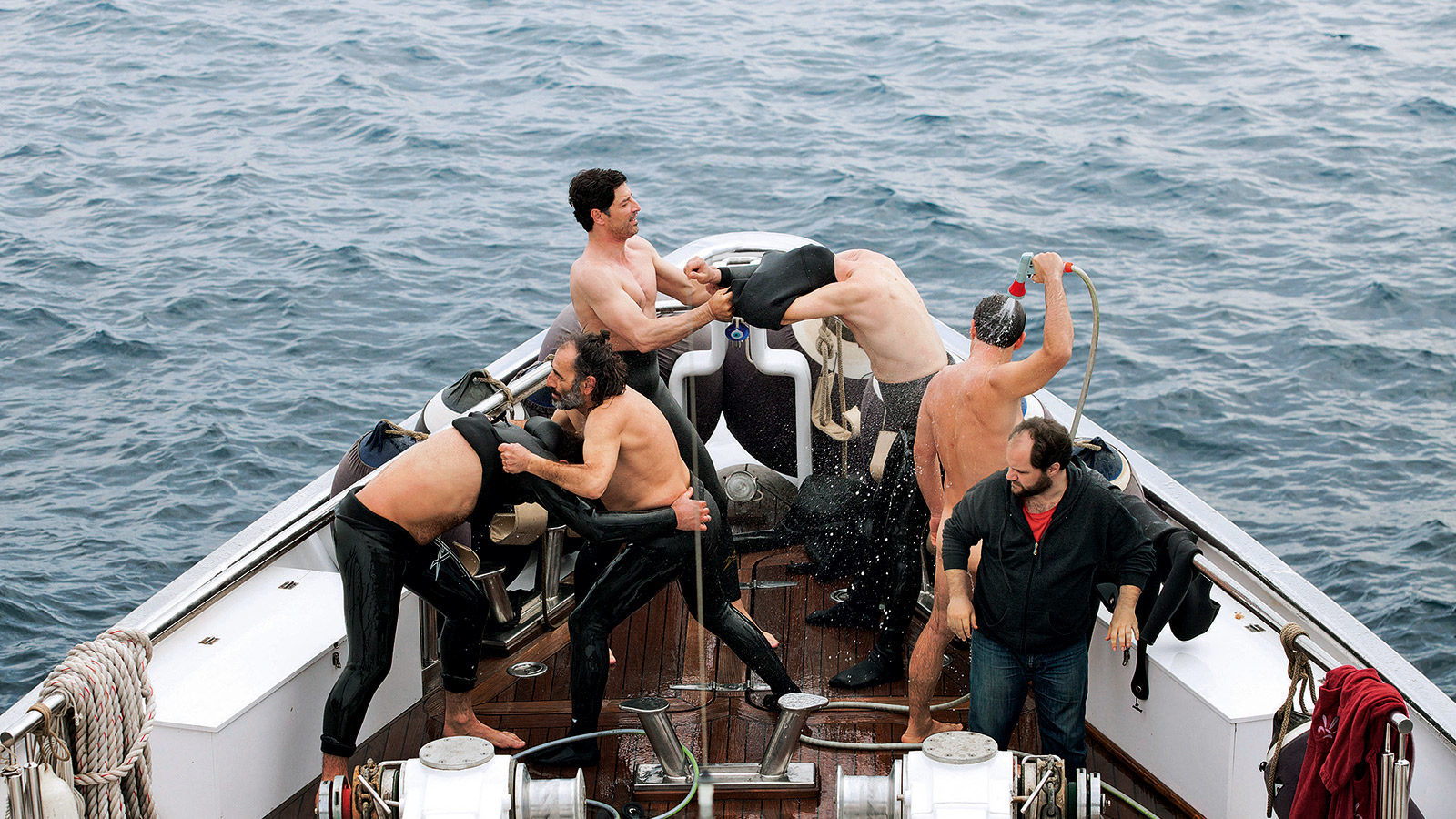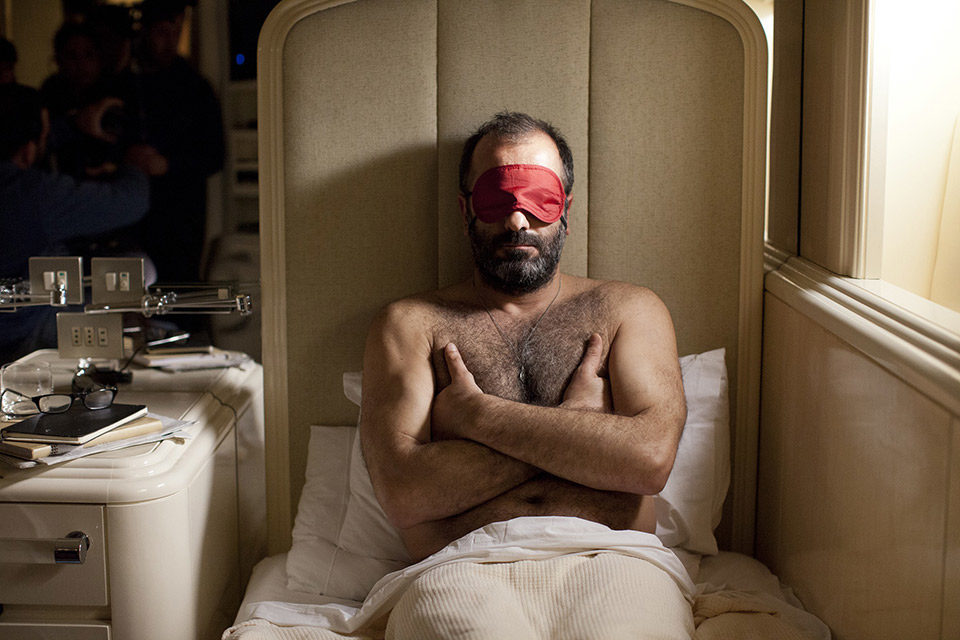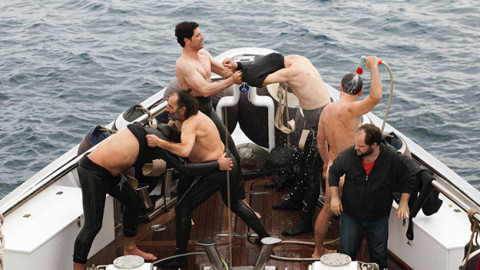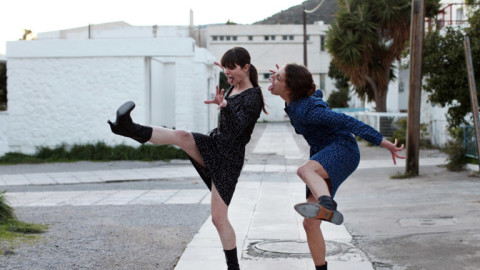
Review: Chevalier
Whether it’s Freud talking or bad ’90s stand-up comedians, womanhood has often been associated with the mysterious and unknown. Yet there’s something inherently flawed about this notion: codes of Western femininity, largely thanks to things like cosmetics ads and Hollywood films, have been discussed, dissected, and sold to women for so long that this “mystery” is more of a micromanaged formula. Masculinity by contrast has been frozen in a monolithic mold of strength and silence, and for far too long. Featuring male characters that obsess over the minutiae of their behavior and bodies—from how straight one’s body lies while sleeping to blood-pressure readings to that old chestnut, penis size—Athina Rachel Tsangari’s Chevalier breaks down that monolith of hetero manhood without devolving into cheap satire or fake profundity.

There’s plenty to laugh at, however. Stuck together on a luxury yacht with long stretches of free time, the all-male passengers—a doctor (Yorgos Kendros), his assistant (Sakis Rouvas), an insurance agent (Yorgos Pirpassopoulos), two business partners (Vangelis Mourikis and Panos Koronis), and a certified man-child (Makis Papadimitriou)—devise games to occupy themselves. In one exercise, they describe one another in solely symbolic terms—if you were a fruit, what fruit would you be?—and everyone has to guess who’s being talked about. After this absurdist version of team-building causes tensions, the men decide to determine who is “the best in general” by assigning points to a series of challenges (e.g., who can assemble an IKEA bookcase the fastest) and to everything they do (whether their pants ride up, or if they show their teeth when they smile). The winner will be rewarded with a chevalier ring upon arrival in Athens.
With pride at stake, any sense of vanity goes out the window. Aside from the fact that dicks are graded in three categories, several of their challenges include domestic labor that, while on land, these hyper-macho fellas would likely consider beneath them. The competition also erodes confidence: the handsomest member confesses to his girlfriend over the phone how stressed out he is, and asks her if his thighs look fat. As the men’s relationships to each other are slowly revealed, it becomes clear that, doubling as competitors and judges, the participants are using the game as an excuse to avenge past slights and work out unspoken antipathies. (The reality-show logic of “alliances” does not apply here.)

The lower decks of the yacht, like the vast majority of contemporary spaces designed for the moneyed elite, have a cream-colored spaciousness that’s further expanded by a range of reflective surfaces and mirrors. Thus the perpetual, all-encompassing nature of the men’s game extends to the mise en scène: there is literally no place to hide from the scrutiny of others (or yourself) while on board. By the end, their game has spread to the crew, who, after breathlessly discussing their employers’ complete devolution into violent chaos, begin to ruthlessly tear each other down. That’s about as far as the commentary on class and Greece’s financial crisis goes, which is to say, not very far. The director is clearly more invested in fashioning a gender critique, and in letting the game run its course.
Tsangari, shooting in luxuriant widescreen, sometimes gets bogged down in following the men’s ridiculous mano-a-mano face-offs with very simple, over-the-shoulder close-ups in shot/countershot. Nevertheless, there are many effortlessly elegant shots of their anxiety playing out in close quarters, and of the mighty Aegean, all of which infuse the film with a feel that floats somewhere between no-holds-barred candid document and overtly constructed work of art.






